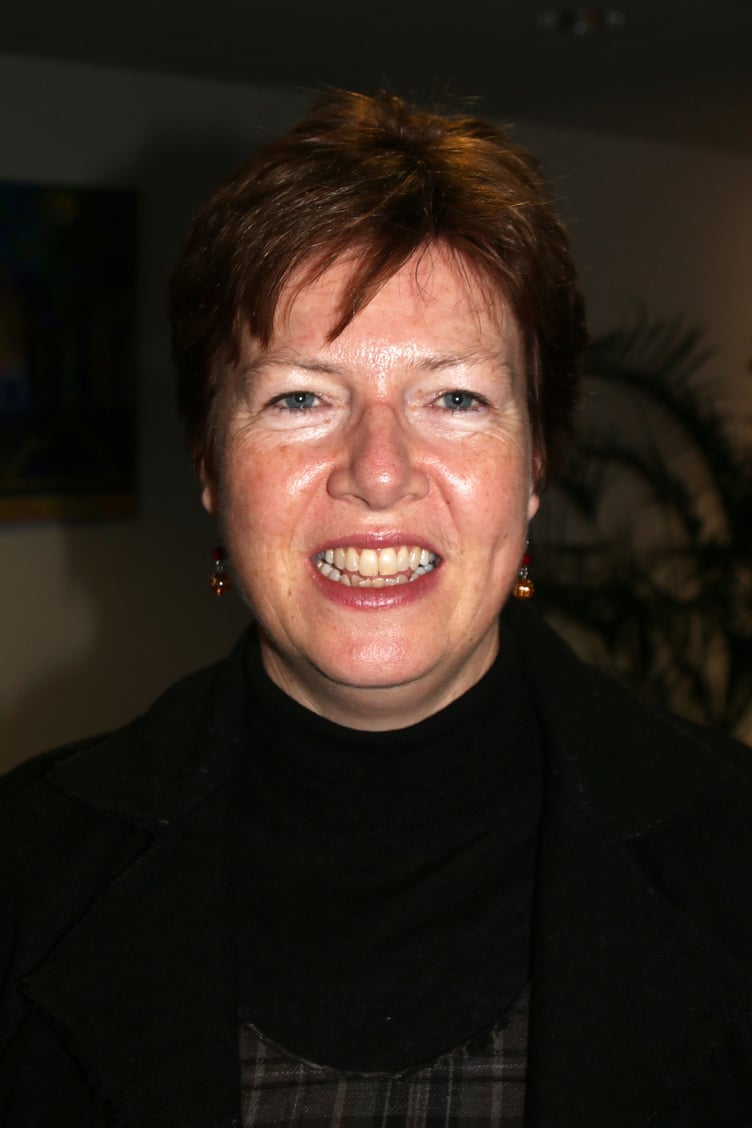Consultation has begun to develop hate crime legislation in the Isle of Man.
Hate crime is defined as a crime, typically involving violence, that is motivated by prejudice on the basis of a protected characteristic.
Protected characteristics, as defined by the UK’s Equality and Human Rights Commission, include: age, disability, gender reassignment, marriage and civil partnership, pregnancy and maternity, race, religion or belief, sex and sexual orientation.
Minister for Justice and Home Affairs Jane Poole-Wilson has told the Manx Independent that there is government appetite to introduce a specific Hate Crime Bill here, as well as a requirement to meet international obligations around racial discrimination and offences, and lots of work is going on behind the scenes to make it happen.
Ahead of that there is a planned Sentencing Bill, which could make provision for hate aspects of a crime to be explicitly reflected on sentencing.
The story on page four of today’s newspaper in which a woman was jailed after assaulting a police officer refers to her racist language.
She wasn’t sentenced because of her racism, however. Under a new law, she could have faced a further charge under hate crime legislation.
SENTENCING
It is hoped that a Sentencing Bill will come forward in the next parliamentary year (2022/2023) and that a full piece of hate crime legislation will be introduced by 2023/2024.
This time frame will give the Department of Home Affairs ‘time to do background policy work’ and undertake ‘proper engagement with stakeholders and make sure that what we put into legislation meets our needs on the island’.
As Mrs Poole-Wilson explained: ‘All the really important legislation we passed in the last administration – like the Domestic Abuse Act , the Sexual Offences and Obscene Publications Act, and the Justice Reform Act - there’s a huge amount of work going on to actually implement that right now.
‘And the same people that do that work, also do policy work for primary legislation.
‘So we have had to stagger this. We can’t ask our two officers to do everything at once.
‘So [the delay] it’s resource, if we’re absolutely honest.
‘It’s not that we don’t think it’s important, we do. But if you look at the legislative programme, and the amount of work that Home Affairs is doing, there’s a lot, and people will tell you that all of it is important, and it is, we just have to prioritise our resource.’
There is currently no hate crime legislation in place on the Isle of Man.
The planned Sentencing Bill would allow for any hate aspect of a crime to be an aggravating factor and be taken into account in sentencing for a crime.
A subsequent Hate Crime Bill would then allow for an offence to exist that acknowledges hate crime, and would therefore be able to prompt an arrest.
Stakeholder discussions have already begun, and a wider consultation is expected in the future.
The Department of Home Affairs is also looking at other jurisdictions, to see what they have implemented and what could be put into place here.
Producing this type of legislation can be made more difficult due to the lack of statistics around hate crime here in the island.
DATA
Although seemingly rare, violent hate crimes are not unheard of.
For example, as we have previously reported, a same-sex married couple were attacked in June of last year while on a night out.
Alex Steffan-Cowell and his husband, Marc Steffan-Cowell, were attacked at Peel’s main bus stop in an unprovoked incident.
After his attacker was handed a 10-month suspended sentence and put on probation for two years, Alex Steffan-Cowell told us the sentence was ‘a joke’.
He said at the time: ‘It makes it worse because obviously there’s no hate crime legislation in the island, so I think that’s probably why the sentencing was so light.
‘It’s going to happen, you’re going to get that [homophobia] wherever you live. But I didn’t realise it was to that extent on the island.’
The Home Affairs Minister does not disagree.
She said: ‘One of the difficulties is we don’t know what isn’t reported.
‘I have a sense that there’s a certain proportion of things that go on that people just don’t report, because they know there’s no specific law, so they think it can’t be prosecuted.
‘And I think also, sometimes there might be other factors, such as fear of how their reporting will be treated.
‘So it’s pretty hard for us to know, with any confidence, what the extent of the problem is, at the moment.
‘What we do know, though, is crimes that have happened, and how horrific they are.
‘And so we can start to have a sense that these things absolutely do happen in the Isle of Man. And I’m confident there will be more of it. It’s just not maybe being reported at the moment.’
Isle of Pride director and trustee Clare Barber MHK said that some have come to the charity to report incidents.
She said: ‘Isle of Pride would always advocate, that if there has been any crime, we would want people to go to the police.
‘But we do recognise, certainly, that there are some people who, for a number of reasons, choose not to.
‘And we certainly have seen the same in terms of sex offences, that until comprehensive legislation comes through, we know that there will be a significant under-reporting. And we also know that the data capture isn’t necessarily accurate, because people choose not to talk about their protected characteristics, and simply say, I’ve been a victim of an attack.
‘Certainly we have spoken to some people who have come to us as Isle of Pride and talked about their experiences of being within the LGBTQIA+ community and have been on the receiving end of what I would consider hate crime, but have not reported it and almost accept that as something that is part of what you should almost have to put up with.
‘And I think we absolutely all see, that is absolutely not how it should be.’
Mrs Barber spoke of another violent incident here in the island to reiterate her point.
She said: ‘It was particularly upsetting that, you know, last year was obviously the first Pride festival and on that same evening, two young men got attacked simply for walking down the street holding hands.
‘That obviously then received quite an extensive amount of interest, as you would imagine having seen the extent of those injuries. And obviously [raised] a question as to why the people who were eventually prosecuted weren’t given stronger sentences.
‘Of course, the reality is it’s because we don’t have that aggravating factor that would have allowed the courts to consider other elements.
‘So I think there’s a huge piece of a jigsaw that’s missing at the minute.’
Mrs Jane Poole-Wilson added: ‘[There are people here] who have experienced something, but haven’t reported it. ’
There is also a fear within some communities that reporting an incident will merely lead to backlash.
Mrs Barber said: ‘Certainly people I’ve talked to, and this isn’t just people within the LGBTQIA+ community, but also people in the people of colour community, where they’ve felt that they don’t want to complain, because to complain would inadvertently cause more frustration against their community.
‘So they’re almost not reporting for themselves, to protect others.
‘And, you know, the idea of someone feeling like they’re in that situation where they can’t report for fear of there being a backlash against a wider community – I think is one of those areas that I say it’s not just the legislation, it’s also making sure that there is the support and working with charities and organisations who have got reach out into certain communities to make sure that the messaging is very clear, the messaging is accessible.
‘In some cases, that will be making sure that messaging around some of this is not just in one language, for example, you know, that we’re making sure we can actually reach into communities and people can understand what their rights are, what the law looks like, and what is and isn’t okay.
‘So I think there are a number of pieces of work that have to go with it.
‘And that’s that point, you can do the legislation, but then it’s that next piece of work.’
SOCIETY
Both Mrs Poole-Wilson and Mrs Barber hope that a Hate Crime Bill will go some way to changing attitudes here in the island.
Mrs Poole-Wilson said: ‘The worst excesses of this are horrific, but it actually starts with a degree of intolerance and what people say and the way they interact.
‘And actually, that’s where all of us can play a part, I think, societally, in saying, “Actually, no, that’s not okay”. People need to feel safe, and able to be themselves without that fear.
‘So I really welcome the fact that we will talk about this more, that we will publicise it, that we will engage people, because then all of us can play our part in not standing by when we see somebody else being treated not very well.
‘And I think if you can do that, in day to day interactions, then, you know, I think you can start to reduce the incidence of hate crime.
‘It is a minority of offenders who do this, but actually as a society, we can all contribute, I think, to saying “No, that’s not what should be happening at all”, we shouldn’t have any tolerance for intolerance.’
Mrs Barber agreed: ‘I think we’ve seen some of that, actually, because even when the topic of hate crime has been discussed on social media, there have been some people who are quite vocal in their opinion, that, you know, “we don’t need hate crime laws and people should be free to say whatever they want, because that is obviously the public right” - but actually, you know, just as Jane has said, then what has happened is a number of people have come in, actually in a very measured and conversational way, saying, “but actually, that just isn’t how it can be”.
‘Although we have freedom of speech, there has to be a point at which we draw a line and say that that freedom of speech can’t extend to being aggressive and cruel against someone purely because of a protected characteristic or something that is part intrinsically of them.’
TIME FRAME
There is a clear commitment from government to get the proposed hate crime legislation right, even if it takes a longer period to achieve it.
Although some legislation has been rushed through Tynwald in recent years, such as coronavirus measures, Douglas East MHK Mrs Barber argued that this is not the way it should be done.
She said: ‘I do think it’s worth touching on briefly, because I think one of the things that I’ve seen thrown back, and we certainly had it with [the] Sex Offences [legislation] – was “you can do the Covid emergency power stuff really quickly”.
‘But I think any of us who sat through that would say – that is not a good way to do legislation.
‘That is absolutely the last resort, where you do legislation very quickly, because there is an absolutely emergency pressing need.
‘But you recognise that you’ll be constantly changing legislation because you’re finding fault with it all the time and it is imperfect.
‘And that is not a masterclass in how to do legislation for the long term.’




